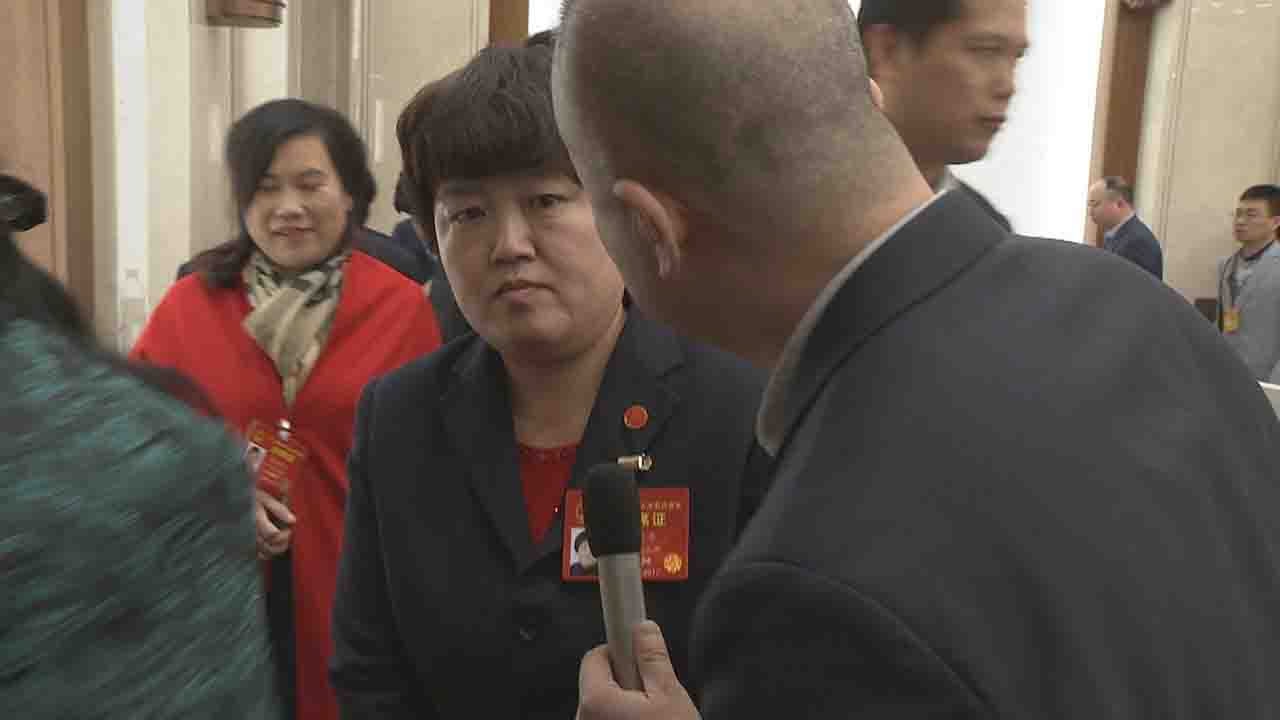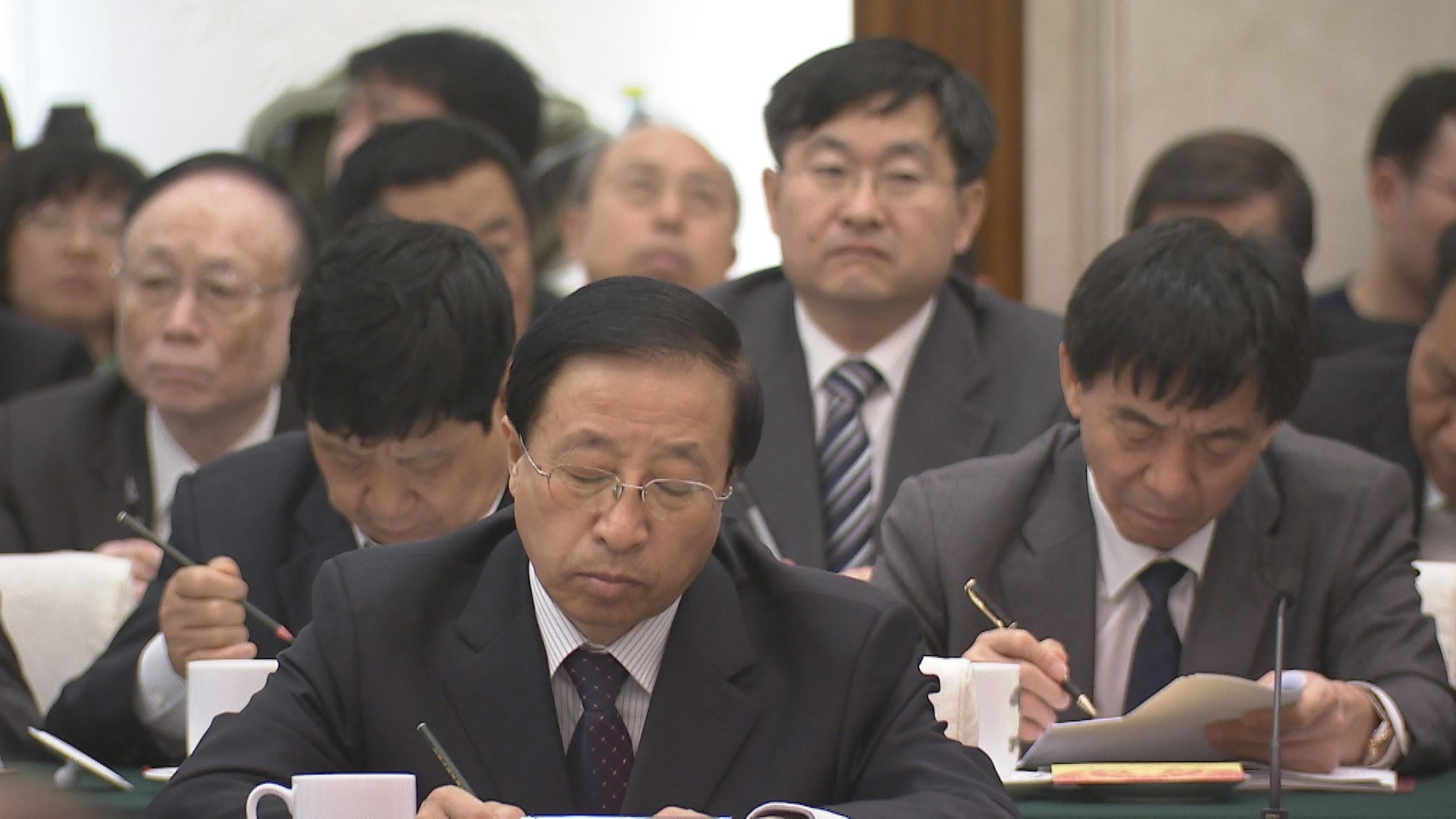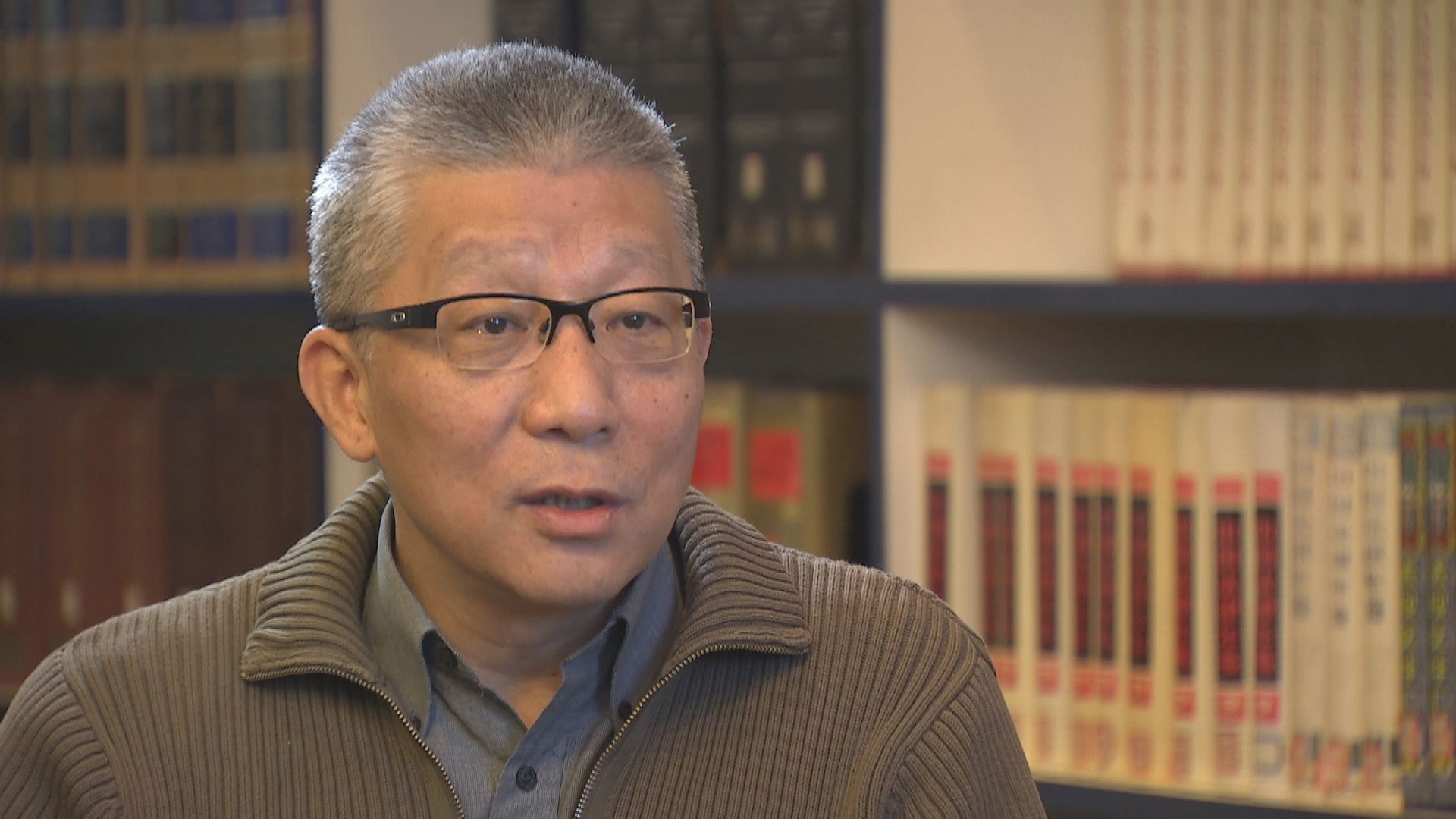
Politics
21:14, 09-Mar-2017
The rise of dissent: Changes come to the NPC, China's lawmaking body
Updated
11:00, 28-Jun-2018

By CGTN's Han Bin
China’s Constitution states that all administrative, judicial and procuratorial organs of the state are supervised by the People’s Congresses. The government says the country should be ruled by law. So how do lawmakers supervise the government’s work? And how do they see dissenting votes at the annual session?
These are key questions on the powers and responsibilities of the National People's Congress (NPC), often characterized by some western media as a rubber stamp. Chinese lawmakers argue the NPC supervision is not a mere formality.
When the simple question “Have you ever voted no?” was raised to the deputies, most of them refused to answer. But decades ago it would have been unthinkable to even consider it.

NPC deputies review the Government Work Report in group meetings on March 8, 2017. /CGTN Photo
NPC deputies review the Government Work Report in group meetings on March 8, 2017. /CGTN Photo
Now, there’s nothing extraordinary in voting against or abstaining during the annual political meetings. For China's nearly 3,000 deputies, reviewing the government reports and making suggestions are the major forms of supervision. Although dissenting voices in the NPC are still very few, many see them as normal practice and a key mechanism in the checks and balances. There’s been rising consensus not to simply obey or follow.
Lawyer Li Dajin, who is also an NPC deputy, said what’s behind the changing attitudes toward dissenting votes is a responsible exercise of deputies’ will and their sacred rights. He said voting for or against or abstaining at the NPC is not a new topic, but a legal right protected by the Constitution.
Li said he has cast his vote against or abstained on certain reports in almost every session. For him, voting "no" is not a complete rejection of government decisions, but a push for better performance.

“I don’t care whether my vote will make big change to the result, but I care about my vote clearly representing my opinions," said Li Dajin, an NPC deputy. /CGTN Photo
“I don’t care whether my vote will make big change to the result, but I care about my vote clearly representing my opinions," said Li Dajin, an NPC deputy. /CGTN Photo
“When I voted 'no' on the Budget Report, I wanted to express my dissatisfaction, to draw the government’s attention to correct the problems, rather than ignore them or even abdicate responsibility. Today it’s rare that any candidate can get unanimous approval. Although voting against may not prevent this candidate from being elected, the message is the questioning of and expectations on him or her, to do a better job, by using our voting rights,” said Lin.
Li said Chinese society needs to be more open to different voices. He also says being critical is easy, but what’s really needed are wisdom and solutions that can make a real change.
Many are critical of the proportion of Party leaders within the NPC, saying it is still high. It's been reported that electoral fraud and "vote-buying" are still common in certain areas. The deputies meet once a year, and the Standing Committees every two months. And few deputies are full-time supervisors. This restricts their supervisory role.
On the whole, progress has been made in NPC supervision, but it needs more courage and perhaps time to make significant changes in China’s political arena.
0km

SITEMAP
Copyright © 2018 CGTN. Beijing ICP prepared NO.16065310-3
Copyright © 2018 CGTN. Beijing ICP prepared NO.16065310-3